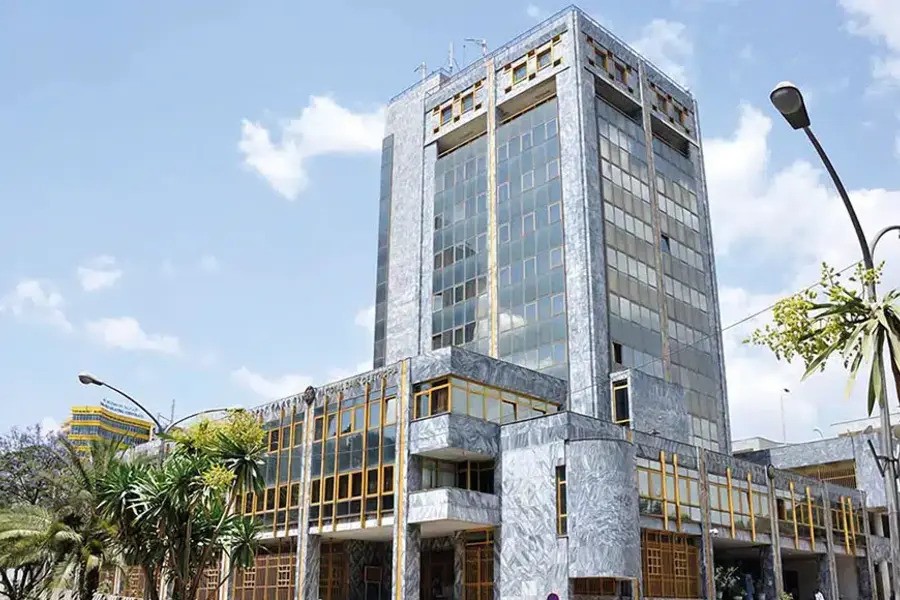
Radar | Jun 08,2019
A new bill that will enable citizens to take federal government institutions to the federal high courts for judicial review has reached a final stage.
Under draft for the past year, the proclamation proposes the establishment of an Administrative Bench at Federal High Courts, where citizens will lodge complaints on the decisions made by federal government institutions.
If approved by the Council of Ministers and parliament, the proclamation will add the Administrative Bench as the fourth bench on the existing court system along with the criminal, civil and labour benches.
Aiming at ensuring the provision of administrative justice, the proclamation will govern government agencies’ decision-making power, procedures and day to day activities. It also empowers the courts to revise the decisions passed by the institutions and remand the cases to be seen again.
The Administrative Bench, which will have three judges, will preside over administrative disputes lodged by citizens against all 20 ministries and agencies. However, the provision excludes decisions made by police, the military and public enterprises.
A working group with 10 members under the Advisory Council for Legal & Justice Affairs drafted the bill. Chaired by Mehari Redae (PhD), a lecturer at Addis Abeba University’s School of Law & Governance Studies, the Legislative Procedure & Administrative Justice Reform Working Group is tasked with writing an administrative law to ensure administrative justice.
The group started operations by identifying the major problems in administrative justice and found that directives that were issued by different government institutions were the leading cause of the problem, according to Abduletif Kedir, the vice secretariat of the Legal Reform Working Group.
“There have been multiple administrative drafts that had been prepared by different government offices over the past years that were never legislated,” said Abduletif.
But as the working group found the drafts to be incomplete, lacking clarity and structurally wrong, it decided to draft a whole new proclamation, according to him.
In principle, administrative institutions have a delegated power to issue laws, as they are closer to the problem. Parliament, which is the main legislative organ of the state, neither has the time nor the expertise to address all necessary details.
However, in practice, the institutions passed directives that violated other laws and passed laws on matters that were outside of their jurisdiction, according to Abduletif.
The draft proclamation proposes that any decision made by the administrative institutions that establish rights and duties should be regarded as a directive. However, the law exempts decisions that govern the internal working structure of institutions from being considered as directives.
“There is a lack of clarity as administrative institutions pass decisions in the forms of circular letters, manuals and guidelines,” said Abduletif.
Decisions that govern the public, in general, are regarded as directives and should be passed after fulfilling specific criteria, according to the bill.
The bill also proposes a new procedure that will make administrative institutions make the proposed directives available for public discussion for not less than a month in order to receive feedback.
The bill also tries to address the accessibility of the directives after they come into effect and prohibits the applicability of any directive before it is made available to the public.
At the very least, the directive should be submitted to the Office of the Attorney General or be posted on its website for it to be implemented, according to Abduletif.
Any directive that was made without fulfilling the above criteria is subject to judicial review, and citizens can ask for the annulment of the directive at the Federal High Court Administrative Bench within three months after the directive is passed, according to the bill.
When reviewing a directive, the Administrative Bench will only ensure that it is in line with the principle of legality; whether or not the subject matter of the directive is within the power of the institution; and identify if necessary procedures were fulfilled before the passing of the directive.
If the Administrative Bench finds that the directive was passed in violation of any of the above principles, it can cancel the directive and order the institution to enact a new directive fulfilling the principles.
The other major issue the administrative bill tries to address is the day to day functions of administrative agencies.
Government institutions in fulfilling their duties and giving service to the public should adhere to international principles of good governance, according to Abduletif.
The bill mandates that government institutions should be transparent, reasonable, act in good faith, pass decisions on time and be non-discriminatory.
It also requires government institutions to give receipts whenever they receive a demand for service and reply to the requests in writing.
The bill empowers any person who believes that a decision made by government agencies was not in respect to these principles and procedures to lodge complaints to the Administrative Bench within one month from the date the decision has been passed.
However, with the view of prohibiting the abuse of such provisions and limiting a large number of cases that could end up at the Administrative Bench, the bill only allows people to lodge their complaints at the court after they have exhausted internal procedures of the specific institution to solve their case.
The Administrative Bench, similar to its judicial power in reviewing directives, does not review the merits of a particular case but rather ensures that an institution of government has followed necessary procedures before the passing of the decision. The court will either sustain the decision or order the institution to review its decision and remand the case.
The first draft of the law was opened for stakeholder discussion on July 20, 2019. The team expects to table the bill to the Council of Ministers this August and the legislation to be voted on this October when parliament returns from recess.
PUBLISHED ON
Jul 27,2019 [ VOL
20 , NO
1004]

Radar | Jun 08,2019

Radar | Apr 30,2022

Fortune News | Sep 30,2021

Fortune News | Jun 01,2019

Agenda | Jan 30,2021

Fortune News | Aug 11,2024

Radar | Dec 26,2020

Fortune News | Jan 29,2022

Radar | May 25,2019

Radar | May 02,2020

Dec 22 , 2024 . By TIZITA SHEWAFERAW
Charged with transforming colossal state-owned enterprises into modern and competitiv...

Aug 18 , 2024 . By AKSAH ITALO
Although predictable Yonas Zerihun's job in the ride-hailing service is not immune to...

Jul 28 , 2024 . By TIZITA SHEWAFERAW
Unhabitual, perhaps too many, Samuel Gebreyohannes, 38, used to occasionally enjoy a couple of beers at breakfast. However, he recently swit...

Jul 13 , 2024 . By AKSAH ITALO
Investors who rely on tractors, trucks, and field vehicles for commuting, transporting commodities, and f...

Jun 28 , 2025
Meseret Damtie, the assertive auditor general, has never been shy about naming names...

Jun 21 , 2025
A well-worn adage says, “Budget is not destiny, but it is direction.” Examining t...

Jun 14 , 2025
Yet again, the Horn of Africa is bracing for trouble. A region already frayed by wars...

Jun 7 , 2025
Few promises shine brighter in Addis Abeba than the pledge of a roof for every family...